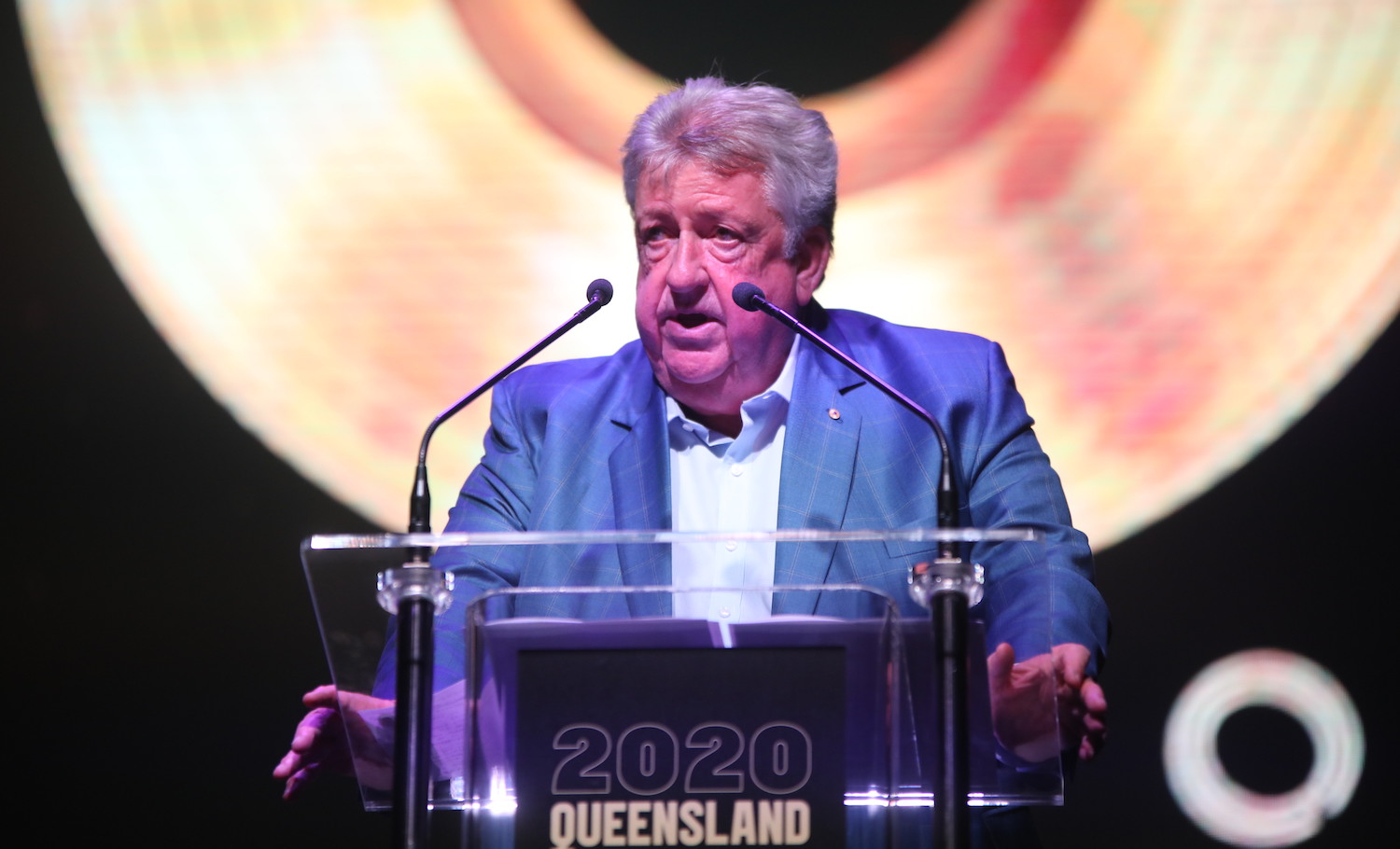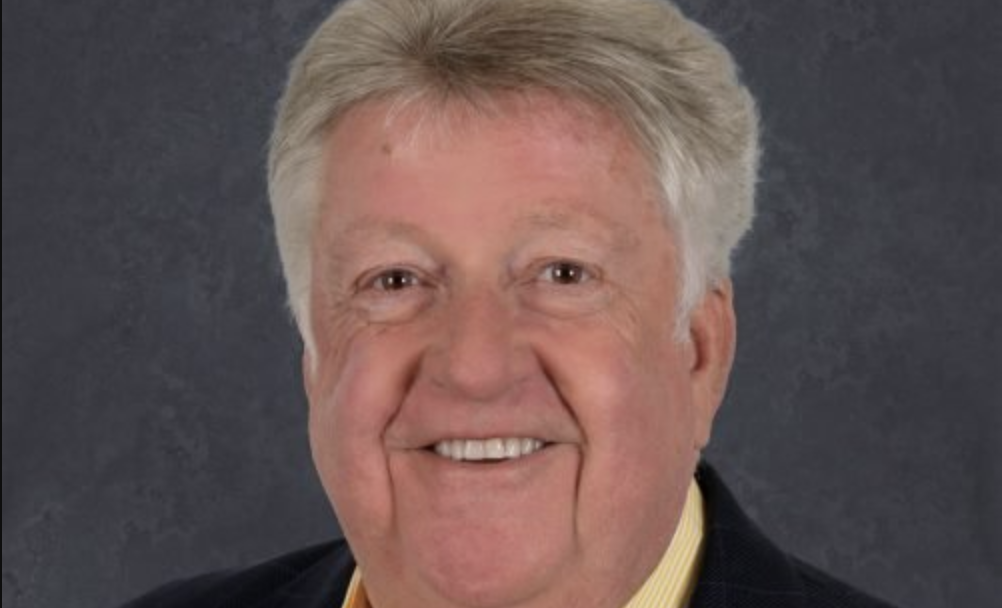5 questions that need answering after Denis Handlin’s exit

With the dramatic sacking of longtime local Sony Music Entertainment CEO Denis Handlin yesterday, there was a sense throughout the industry that we might be entering a different world – we’re not in Kansas anymore. Despite the monumental moment though, there are too many questions going unanswered and issues which need solving – whether it’s the entertainment and media industry’s reliance on NDAs which fuels the insidious silence and culture of fear which permeates the sector, or how Sony Music will reassure its staff that they should remain loyal to the organisation.
Here TMN’s editor, Vivienne Kelly, explores the top five questions which we need to make noise about, and further asks why we’re being met with a wall of silence.
After a tumultuous tornado and the professional death of Sony Music’s longest-serving global employee who has ruled and reigned over the local music scene for decades, some industry stalwarts said they felt lighter and that the world appeared safer, brighter and more hopeful yesterday. The munchkins were singing, if you like.
Others, though, fear there are still large-scale ‘evil’ forces out there, whether they be flying monkeys or corporate heavy weights complicit in the wider industry’s culture of scared silence which can’t be transformed or overcome with one high-profile exit.
So as we go down the Yellow Brick Road to find out what’s next and who’s behind the curtain, there are still a number of hefty questions which must be answered.
It’s certainly not over yet.
-
Will there be more exits?
The rumour mill – and industry WhatsApp group chats – is already in overdrive about who else could exit Sony Music Australia in the wake of the global investigation into the local organisation’s workplace culture.
Speaking on The Project last night, journalist Nathaniel Cooper, who broke the story of Sony Music’s investigation into its local operation, echoed the sentiments of many of those chats and whispered conversations, noting that there would be more than one or two men from within the industry secretly wondering when their own comeuppance might arrive.
Despite this year feeling like the music industry’s pivotal #MeToo moment, there are still many untold stories, and numerous executives and leaders with plenty to hide.
Already TMN understands two executives close to Handlin are ‘on leave’ while the external investigation into Sony Music’s workplace culture – first reported by Cooper – continues.
-
Who will replace Handlin?
Handlin has been with Sony Music, and indeed in its top job, for longer than many of its young employees have been alive, so replacing him was always going to be a lofty task.
Add to that Handlin’s dramatic exit and the potential to inherit a toxic workplace riddled with allegations of harassment, bullying, discrimination, alcohol dependence, and a culture of fear, anxiety and burnout – and suddenly it might not be the dream job Handlin painted it to be.

Handlin has been with the organisation since 1970
Just because an executive is qualified to succeed Handlin, doesn’t mean they will want to.
If Sony appoints someone from within the local operation – anyone perceived to be Handlin’s right-hand man (or woman) – and the optics will be that the company’s boys’ club culture is here to stay.
If it goes global, and brings in an experienced executive who knows the global company’s ways of working, policies, procedures and politics, it has more chance of looking like it’s ready for change.
Even with this approach though, there are issues with parachuting in an international operative. In this instance, it would be hard not to have that look like a clean-up job and internal cover-up, motivated by Sony Music’s global desire to clean up its image, rather than bringing in an Aussie who knows the issues, and has a local appetite to actually change them.
Which brings us to the third option: A local music industry insider without massive ties to Handlin or Sony. They’d be aware of the whispers, the rumours, the problems, but might have a more balanced perspective on how to turn it around.
Some people TMN spoke to said Sony Music will face a massive optics issue if it appoints a man into the role, no matter his credentials, however convincing a woman to take the job will be no walk in the park.
The final option is to go down a path similar to that of ARIA, and look completely outside the insular music industry.
ARIA appointed former TV executive and government advisor, Annabelle Herd, into the CEO role, rather than an existing label exec or industry insider.

ARIA’s Herd has an outsider’s perspective on how the music industry could be better
Herd has policy and government relations experience, as well as over 15 years with Network 10, more than two of which prepared her for the CEO role as chief operating officer.
She’s come into the music industry fully admitting she doesn’t know who’s who in the zoo, and is holding open and honest conversations about what the industry needs, how she and ARIA can help, and what business and corporate expertise she can offer an industry which traditionally only employs insiders and might now be able to do things a little differently.
Names doing the rounds as potential successors at the moment include Tim Pithouse, a former Sony MusicEntertainment Australia executive who moved abroad for a global head of artist and label services role at The Orchard in 2018, and former Warner Music Australia leader Beth Appleton, who left earlier this year.
-
Should I stay or should I go?
A number of staff within Sony Music in Australia are now questioning whether they stick around for what they hope is systemic change, or if they simply get out now to avoid further disruption and negative attention.
It is, of course, not as simple as that, with no guarantee that another company within Australia’s music industry will be spared from the same fate.
With such a high level of anxiety and uncertainty, many young staffers within Sony Music are seeking reassurance from the global team or someone who knows – and is allowed to speak about – what is going on.
TMN took a number of these questions to Sony Music’s global communications team, including asking what the organisation would say to reassure local staff who are considering jumping ship, what working for the organisation might look like moving forward, and what guidance they can offer on how the culture might be improved.
Sony Music declined to answer any of the questions.
-
How do you solve a problem like “toxic workplace culture?”
Sony Music’s global head of human resources, Andrew Davis, has previously said the organisation “does not tolerate harassment, bullying or discrimination in any part of the company” and that it “take[s] seriously and look[s] into any allegations brought to us, and have been looking into recent complaints”.
Beyond Handlin’s sacking yesterday, however, it’s difficult to get a grasp on what this looks like and what’s going on behind the curtain. Global comms remains quiet, and locally there’s little transparency as to what’s next.
As Cooper put it on The Project last night: “They have remained stoically silent throughout this process about the investigation, about what’s going on within Sony Music, and now today why Denis Handlin has been sacked.”
After a months-long investigation, Cooper brought to light allegations of senior managers inappropriately touching women, women who’ve been sexually harassed by their bosses, allegations of physical assault and discrimination – “the list goes on and on”, as he said – but even he couldn’t get answers from the gatekeepers.
And last night, The Guardian reported even more allegations of misconduct, aggression, an alcohol-fuelled culture, harassment and discrimination.
Again, the global comms team has remained silent, making this yet another question being sung by the industry’s munchkins, tin men, lions, scarecrows, Totos and Dorothys. All call, no response.
-
How can we overcome the culture of silence and secrecy?
There is a price for silence.
Last night the group chats may have been pinging and buzzing, with music industry employees’ phones running out of battery life far earlier than a normal day.
Yet for every notification, ping and vibrate, there was a comparative stark silence from those whose voices we needed to hear.
Musician Eilish Gilligan sent out an equally hilarious and depressing tweet, highlighting the industry’s proclivity for keeping these conversations away from public forums.
i wish all aus music industry people a very enjoy the group chat today
— eilish gilligan (@eilishgilligan) June 21, 2021
She followed up with the astute observation that “the reliance on whispers and subtweeting is the saddest thing ever because people are still really afraid so do with that what you will”.
Indeed even beyond people’s (very reasonable) fear about repercussions for speaking out, is the legal motivation behind some people’s silence.
Many people The Guardian spoke to, who have since left Sony Music, have signed non-disclosure agreements (NDAs).
The entertainment and media industries’ reliance on NDAs fuels the insidious silence and culture of fear which permeates the sector.
No one blames a former employee for signing one – often it’s the only thing they can do to get their money and get out – but organisations’ reliance on them really needs to be questioned.
Should an organisation which spruiks its ability to entertain, enlighten and enliven people through sound, experience and connection really be so reliant on a document which is the antithesis of all those values?
There is a price for silence, and it’s time we all stopped paying it.
Sony Music declined to break its silence for this story.






























